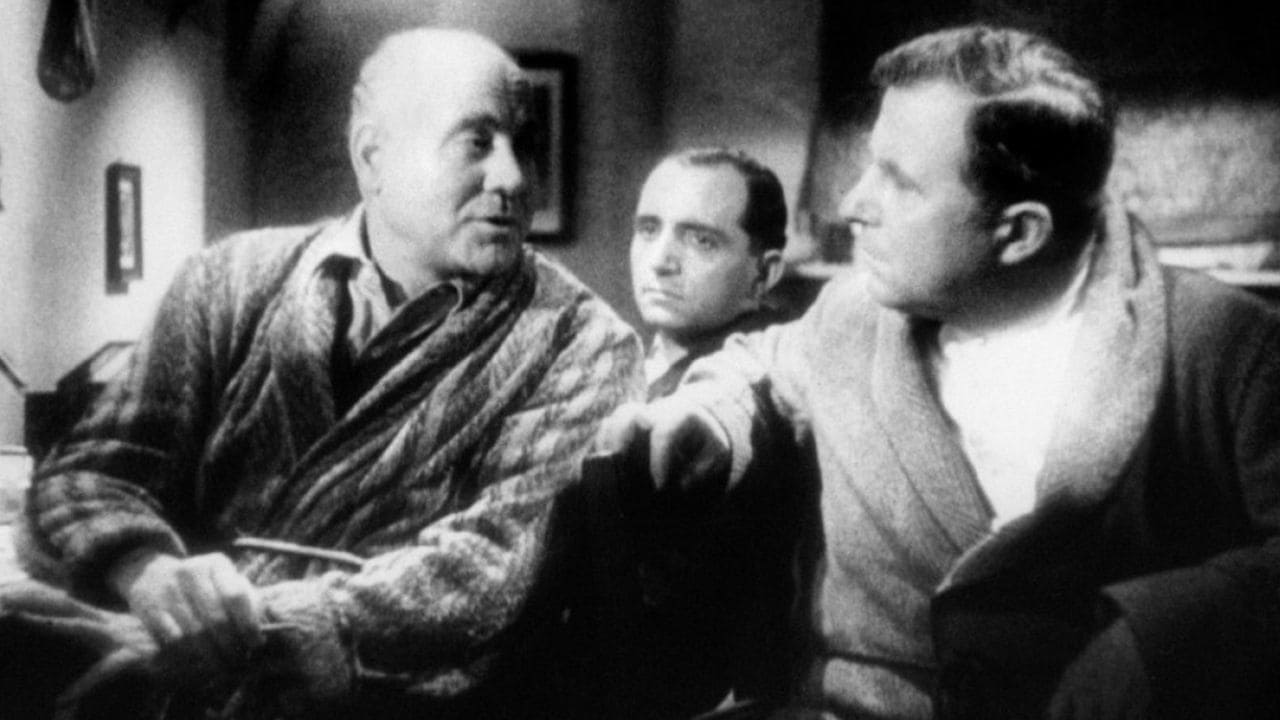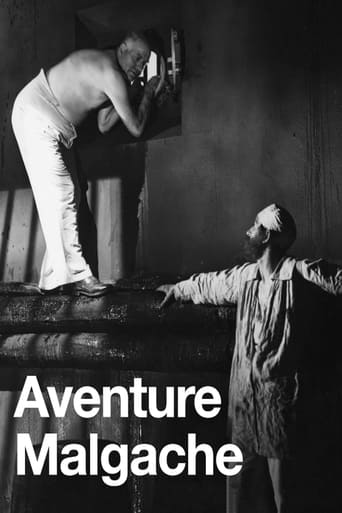

"Aventure malgache" is a French documentary drama from over 70 years ago and the only reason it is somewhat known today is because of its director. Alfred Hitchcock shot this film during World War II and it's one of his very few French movies, so make sure you catch a set of subtitles when watching this. I have seen some Hitch, not even close to most of his works, but I thought there was nothing memorable about this one here. It's black-and-white and runs for slightly over half an hour. It can be a decent watch with people in a great interest in French history, resistance, etc. but I found none of the drama really that well done in here and I am actually glad to see that Hitchcock did not stretch this to a full feature drama film. Certainly one of his weakest projects, which is slightly disappointing as he made some of his classics already before this one, even if his great successes followed a bit later. With the exception of Paul Bonifas, the cast is not known at all either, many of them never appeared in film again. Not a good watch, not recommended.
... View More"Aventure Malgache" ("Madagascan Adventure") was one of two short French-language propaganda films which Alfred Hitchcock directed for the British Ministry of Information during the Second World War, the other being "Bon Voyage". "Bon Voyage" was intended to publicise the struggle of the French Resistance in mainland France itself, while "Aventure Malgache" deals with the Resistance movement in the French colonies. After the fall of France in 1940 the administration in French Madagascar (like that in some other colonies) supported the collaborationist Vichy regime until the island was liberated by British and Free French forces in 1942. The hero of the film is Paul Clarus, a lawyer and amateur actor, who is a leading light in the Resistance on Madagascar. (He is said to be based upon a real-life figure, Jules François Clermont, who portrays him in the films). His activities include helping anti-Vichy Frenchmen escape from the island to British-controlled territory and running a clandestine pro-Resistance radio station. These activities bring him into conflict with the villainous Jean Michel, who before the war was a criminal whom Clarus prosecuted in court, but who has now become the Vichy regime's "Chef de la Sûreté" on the island. Some Vichy supporters were quite sincere in their belief that Marshal Philippe Petain's regime represented the best hope for the French nation but Michel is a cynical turncoat; when the British arrive we see him replacing a portrait of Petain in his office with one of Queen Victoria (which he has presumably been keeping in preparation for just such an eventuality).In "Bon Voyage" Hitchcock did make some use of his normal suspense techniques, but "Aventure Malgache" is a more straightforward piece of propaganda. In the opening scene Clarus is seen discussing his adventures with some of his actor friends, so there is little suspense about the film; we know from the start that Clarus will survive. As with "Bon Voyage" the film is so different from Hitchcock's normal feature films, even explicitly propagandist ones like "Foreign Correspondence" or "Saboteur", that I will not award it a mark out of 10. It did, however, expand my French vocabulary by one word. "Malgache" is French for "Madagascan"; on the basis that "gacher" is French for "to spoil" I would otherwise have translated the title as "An Adventure Badly Spoiled".
... View MoreAs agitprop, as other reviews have noted, this one perhaps isn't the kind of Howard Hawks rabble-rouser one would have expected to be produced in the throes of war. It's also notably low-budget, with all the scenes being produced in cramped indoor sets that accommodate very little motion, either among the actors or with the camera.That said, there are some classic Hitch moments within. There's the theme of the double, the double-agent and the duel (and duality) between the two antagonists, one a veteran of Verdun and a prominent defense lawyer, and the other the chief of police and security for Vichy Madagascar. There's the moment when one of the resistance fighters, about to leave for England to join the French Army, is betrayed by his fiancée who either believes this will keep him with her or is getting revenge -- we never know -- slowly, slowly moves towards the phone to drop a dime on him (and our hero), and the phone slowly comes into focus in the foreground. And there's this odd narrative device of having the story told from backstage of a French theater troupe in London -- exactly why the lawyer ended up doing a theatrical performance, after having escaped the Vichy and been a producer of his own propaganda radio broadcasts, is completely unclear, but it may be Hitch's subtle way of using the artifice of the production values to his good advantage. Even if you don't speak French, it's fun picking out the classic rhythms of dialogue and editing pace common to Hitch. Compare, for instance, to the almost contemporaneous 'Lifeboat', which was another completely talky piece of wartime agitprop shot in incredibly close confines (literally so in the latter case). If you can't use the great horizons of the outdoors, use the claustrophobic to generate that sense of dread of being caught that must've been endemic to being part of a secret resistance.I wouldn't seek this out unless you're interested in the social history of propaganda, the French resistance, or unless you're looking for a research paper for film school on Hitch, but given its short running time it is hardly a waste of time.
... View MoreA corrupt Vichy police official & a wily Resistance lawyer have their own intense AVENTURE MALAGACHE during the early years of the Second World War.Although having lived in Hollywood since 1939, famed film director Alfred Hitchcock nevertheless wanted to be involved in some way with the British war effort against the Axis. So, in 1943 he returned to London & took up the assignment to direct a couple of propaganda films aimed at the French, under the auspices of the British Ministry of Information. The two film shorts which resulted - BON VOYAGE & AVENTURE MALAGACHE (both 1944) - did not excite the Ministry and were given only very brief exhibition, after which they languished for decades in the vaults of the British Film Institute. Hitchcock, meanwhile, his war service satisfied, returned to California.AVENTURE MALAGACHE (Adventure in Madagascar) is basically a look at the extreme antagonism between the two principal characters, cut off, as they are, from the main action of the War due to their Indian Ocean location. Extremely fast moving, it demands unblinking attention on the part of the viewer, especially if one must needs be forced to rely on the English subtitles. The acting & production values are quite good - Hitchcock was able to call upon the services of French actors, writers & technicians exiled in Britain.
... View More